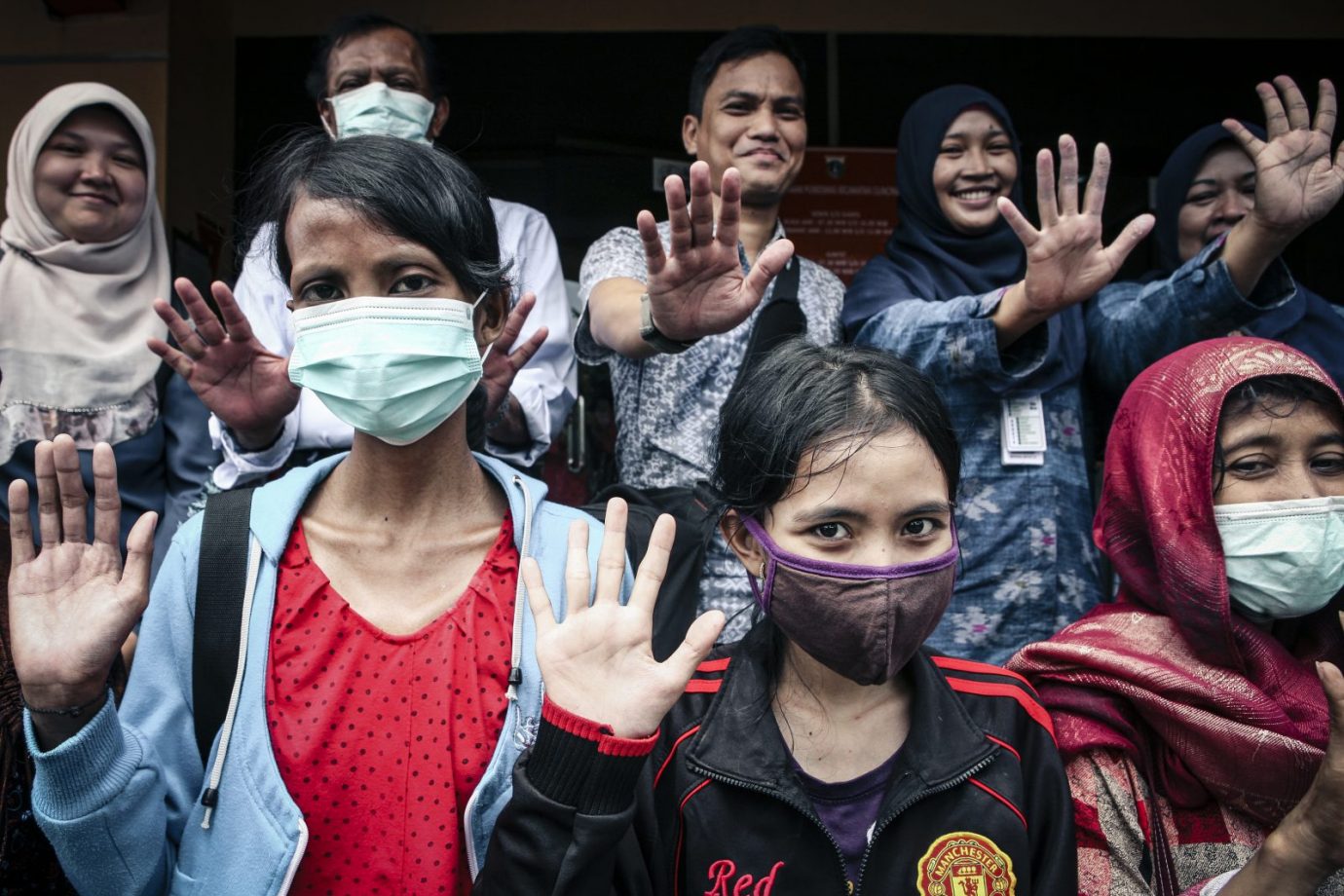Stigma is standing in the way of worldwide elimination of tuberculosis (TB). That is the message being put forward by a recent special issue of the International Journal of Tuberculosis and Lung Disease (IJTLD), which was funded by USAID and is dedicated to the measurement of stigma related to TB.
Ellen M. H. Mitchell, Senior Epidemiologist at KNCV Tuberculosis Foundation designed three of the experiments featured, Co-Edited the supplement and wrote the following inspiring editorial together with Amrita Daftary, Assistant Professor (Research) Department of Epidemiology, Biostatistics & Occupational Health, and International TB Centre at McGill University.
TB Stigma: clearing the fog
 This TB Stigma Measurement supplement is a long time coming. The need for tools to measure stigma has been voiced before, only to be lost in the louder din of voices calling for new technologies, new medicines, and the rush to meet targets, deadlines, benchmarks and count up ‘cases’ that were ‘cured’.
This TB Stigma Measurement supplement is a long time coming. The need for tools to measure stigma has been voiced before, only to be lost in the louder din of voices calling for new technologies, new medicines, and the rush to meet targets, deadlines, benchmarks and count up ‘cases’ that were ‘cured’.
Past efforts to measure TB stigma have been stymied by doctrinal differences, internecine debates over definitions, and a pedantry that excluded many important stakeholders. Measuring TB stigma is not an elite project, but it does present some real technical challenges.
Despite persuasive arguments about its consequences, TB programs have been apprehensive about measuring something that they viewed as amorphous. The contours of stigma have been ill defined. Epidemiologists have fretted over the imprecision with which the word ‘stigma’ has been used. Anthropologists have argued against reducing this complex and variable social construct to a set of indicators. Human rights advocates have resisted the myopic focus on personal pain at the expense of revealing the unjust societal structures that foster stigma. For too long now, it has been easier to sustain rather than reconcile debates in the stigma measurement discourse.
Measurement of suffering can be a depressing business. What makes this a hopeful and inspiring set of papers is the idea that by mapping pain and discriminatory practices we are also charting solutions, and an end to oppressive attitudes and social norms. The new metrics and new methods described here take the field out of the fog and will catalyze bold new efforts to track gross mistreatment and reveal our more subtle biases. This supplement will help us to root out injustices where they lurk unchecked in our policies, our postures, our language, and even in our laughter.
Straetemans et al. and Wouters et al. show us that everyone can be engaged to stand up to stigma in health care settings. Chikovore et al., Hayes-Larson et al. and Miller et al. all draw attention to men’s experiences with TB stigma, suffering that we tend to ignore. Bond et al. show us how much stigma varies at the local level, while Rood et al. reveal its global contours. Zwerling et al. teach us how stigma must inform the ‘dismal science’. Sommerland et al. show us (twice) that reducing stigma will not be easy. So Macintyre et al. provide a map for those brave enough to try.
Measurement can be trivial or transcendental. Our task is to make stigma measurement part of a project of reimagining TB care and management in ways that uphold the dignity of all involved, elevate the spirits and recognize the humanity of people touched by TB. Our fears and prejudices have no place in the fight against TB.
For further reading the IJTLD supplement is open access and can be downloaded.
On December 11 and 12th, KNCV will convene thought leaders from around the world in the Hague to define the next phase of global TB stigma reduction. At the Getting to Zero TB Stigma meeting experts from Ethiopia, Indonesia, Nigeria, Kyrgyzstan, Zambia and Vietnam will present on efforts to tackle stigma of TB among health care workers, affected families and individuals with TB. You can participate via the online webinar platform. More information on how this will work will be published next week on our website.

